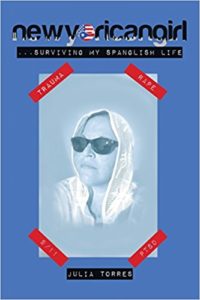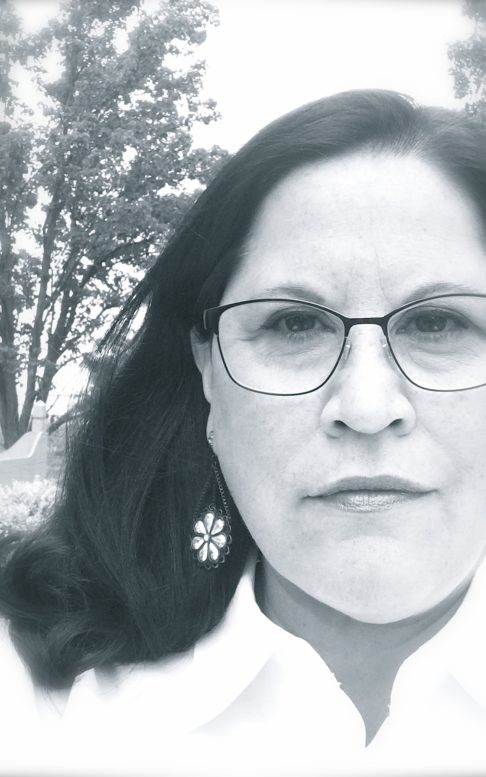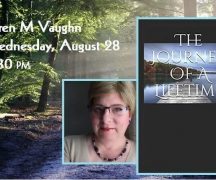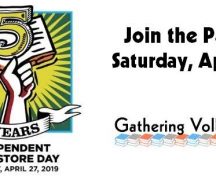By DAVID DUPONT
BG Independent News
Julia Torres Barden grew up as the Twin Towers of the World Trade Center rose above the New York skyline. “I spent my whole childhood watching them get bigger and bigger,” she said in a recent interview.
That childhood started in the projects in the South Bronx, amidst her fellow Puerto Ricans, and then later in Upper Manhattan.
On the day of the 9/11 attacks she was back in Manhattan on business.
 She was watching the aftermath of the first plane striking on a large screen in Times Square with a group of strangers. At that moment they assumed it was an accident, then the second plane struck.
She was watching the aftermath of the first plane striking on a large screen in Times Square with a group of strangers. At that moment they assumed it was an accident, then the second plane struck.
“It was devastating … to see them collapse like that. Those towers were raise in glory throughout my childhood,” she said.
Now there was a sense of the city being under attack.
Torres Barden, now of Perrysburg, recalls in striking detail the next couple days, being trapped in her hotel room, watching far too much TV coverage. She remembers the constant bomb threats to the Empire State Building, Grand Central Station, the Lincoln Tunnel, which was her exit from the city,
At the time, she said, she was just concerned with making it through the day, and getting back to her husband and three sons in Virginia.
It would be a few years later when she would realize the toll the attack took on her, when suddenly found herself struggling to breathe. What she and doctors thought was an allergic reaction to nuts, turned out to be the emergence of Post-Traumatic Stress Syndrome.
Torres Barden has written a book “NewYoricanGirl … Surviving My Spanglish Life,” that deals with her life’s traumas and her recovery. On Saturday, Oct. 14, from 2 -4 p.m. she will sign and talk about the book at Gathering Volumes, 196 E. Boundary St., Perrysburg. Then at 4 p.m. there will be a community conversation about mental illness with a therapist.
Torres Barden was born in South Carolina, where her father was stationed as a Marine, but she was soon at home in the Bronx. Her parents had moved there from Puerto Rico when they were children.
It was a tough neighborhood, Torres Barden said. She lived in the projects, “my cement reality,” in a landscape of burned out buildings, abandoned lots. “The South Bronx in the sixties was not a place you wanted to get lost in,” she said. “I grew up in a very tough violent neighborhood in an extremely dysfunctional, but loving family.”
But her mother landed a job as an executive assistant at a top media company that allowed her to move the family to Upper Manhattan, to a building with a doorman.
Yet that didn’t mean young Julia was safe. At 9 years old she was walking home from school, when she was approached by a man claiming to be a police officer who needed her help finding a dog.
He took her to the basement of a tenement, not more than 400 yards from her door, and raped her. He let her go. He let her live. She went home. She never told anyone. Her mother died not knowing her daughter’s secret.
It wasn’t until Torres Barden was 21 that she told someone, her fiancée.
“I didn’t trust the adults in my life,” she said. “I saw so many chaotic and violent things with them present, at their hand sometimes, that I somehow instinctively knew I would be safer if I turned inward and protected myself.”
The energy that demanded of her “took away my childhood.”
Every day on her way to school, she had to walk by the building where she was raped. She never saw her rapist again. He’d threatened to hurt her more if she told anyone. “I lived a childhood always looking over my shoulder.”
Torres Barden went on with life. She attended Emerson College in Boston and became a spokesperson for what was then AT&T Broadband. Along the way she broke glass ceilings both as a woman and as a Hispanic.
Her job is what brought her back to New York City on that fateful day. She remembers after seeing the towers falling and considering whether she should continue on to the business meeting or retreat to her hotel. She knew she had to tend to business. As a Hispanic working in an important role for a major corporation, she knew she had to be on duty.
As soon as the Lincoln Tunnel opened, she left the city and headed home. Driving in the enclosed space of the tunnel was hard, and she forgot what would be waiting on the other side – a panoramic view of the World Trade Center site.
“It smelled like war,” she said. She knew she was inhaling the remains of the victims, the toxic chemicals from the building and the planes.
She tried to make her youngest son’s birthday party, he turned 8 on Sept. 15, absolutely normal. “We wanted to protect him.”
Her 15-year-old son wanted to join the military, and her 12–year-old son wanted to protect her.
Three weeks later they returned to the city. She didn’t want them to be afraid of it. She remembers heading to a Mets game, and learning that the U.S. had invaded Afghanistan. And she took them to Ground Zero.
Then three years later, on the anniversary of her mother’s death, Torres Barden felt like she could not breathe. She recalled her mother dying. Her mother had fought to have doctors remove her from life support. Now Torres Barden was panicked that she would die like her mother, gasping for breath. Diagnosed with a nut allergy, she was given a heavy dose of Prednisone, a steroid. That only made the anxiety more extreme.
“You’re in a psychological hurricane, a Cat. 5. You presume this is the way it’s going to be the rest of your life,” she said. “I was raised with unbalanced people who never were appropriately treated, and I thought I’d become my worst nightmare.”
But her family physician had seen his own mother go through something similar and knew how to approach it. The three cores to recovery were to address the mental, physical, and faith aspects of the disease.
“The holistic approach felt like it was saving my life,” she said. “It took me a good year to get back to some sense of normalcy.”
That took support from her husband and her sons who did their best to shield her from triggers, including violent TV and video games.
She also got intensive counseling three times a week, which allowed her to avoid hospitalization. She accepted her condition. “I carried it around like a buddy.”
Part of her mission is to reach out and help others with PTSD, and counter misconceptions. It doesn’t just affect military veterans, she said. Professional people such as herself suffer from it.
After a career of speaking for the cable industry, Torres Barden decided to get on the other side, and become a freelance author, winning a couple awards along the way and contributing to HuffPost.
She wanted to write a book about her experiences, and it was another medical problem, gall bladder surgery, that gave her the opportunity.
She decided to put her six weeks of convalescence to good use. She wrote 86,000 words aimed at people like herself who were recovering or people suffering, or those who know someone with PTSD. “It was like birthing a child.”
She self-published the book using Lulu.
“I cleaned out all the skeletons in my closet.” She’s pleased when someone says they read the book because they had something similar happen to them. “Any mental illness can be isolating. … The stigma is a beast.”
Sharing her story is a way of fighting back against that beast.
“I’ve lived a very fortunate life in recovery,” Torres Barden said. “At this stage in my life if I can’t help others, shame on me.”





